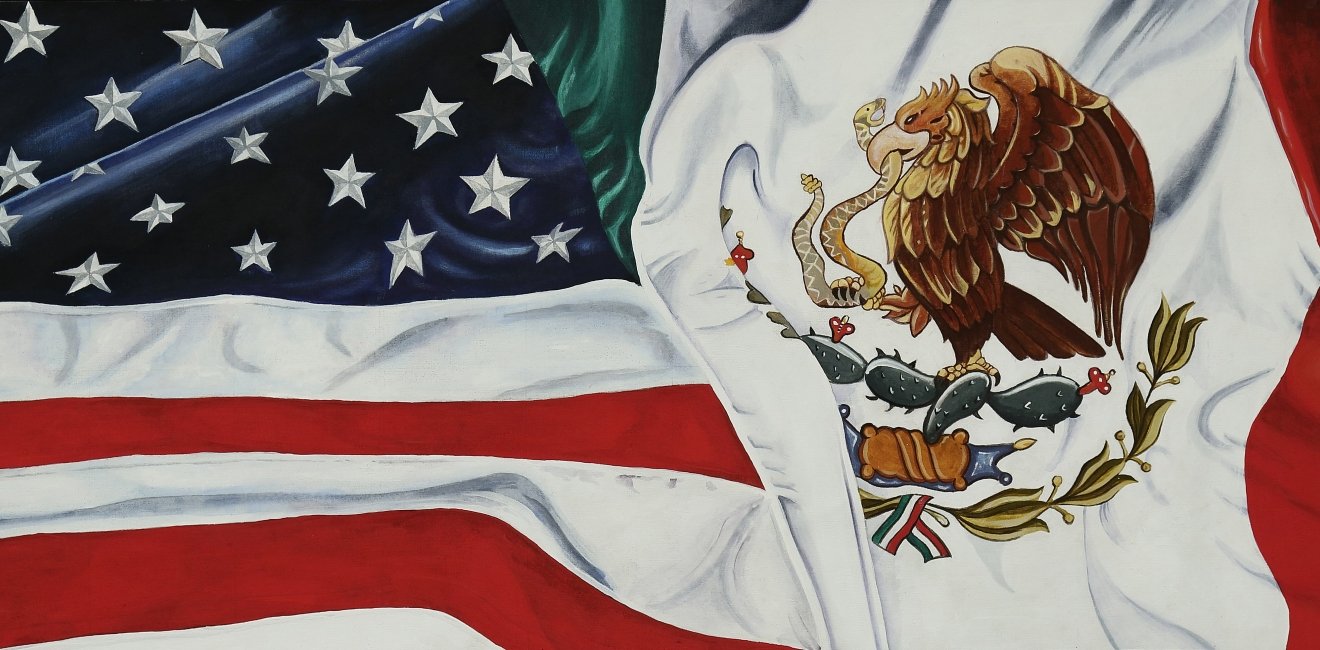Mexico City, October 14, 2022. - “This award, given for the first time to a Mexican woman, appropriately recognizes the contribution to Mexico-United States cooperation, of all of the women who have worked arduously to improve lives on both sides of our shared border,” said Laura Díez Barroso Azcárraga, President of Banco Santander's Administrative Council and of the Grupo Aeroportuario del Pacífico. “Receiving this award is a great honor and, I believe, validates the programs and projects on which I’ve had the privilege to work throughout the years alongside countless committed professionals.”
With regard to the post pandemic economy and high rates of inflation in Mexico and the United States, Díez Barroso stated that, “we should be conscious that it disproportionately affects the poorest, regardless of which side of the border they are on. The pandemic had a significant impact on the wellbeing of people and unfortunately erased many of the gains in combatting poverty achieved in both countries.”
“I am convinced that this post-pandemic era will place greater responsibility on businesses to treat their collaborators, their clients, their shareholders, and the communities in which they operate with respect and care. It is imperative that we continue to pursue bilateral efforts to build more resilient societies, that are, most importantly, more equal and inclusive,” she concluded.
José Ángel Gurría Treviño, former Secretary of Foreign Affairs and former Secretary General of the Organization for Economic Cooperation and Development (OECD) noted that “this award – which bears the name of one of the U.S. presidents most conscious of the international realities of his time, and who conceived of the idea of the United Nations – serves as motivation for me to continue promoting multilateralism. Wilson knew that the best (and often the only) way to address global issues (e.g.: climate change, biodiversity, pandemics, digitalization, commerce, investment, growth, and peace and stability) is through collective effort.”
The current global economic challenges, Gurría Treviño observed, “are the result of a ‘perfect storm:’ economic downturn; generalized inflation; stagnant cross-border commerce and investment; semiconductor shortages that impact practically all manufacturers; and rising costs of energy, food, and certain strategic minerals. This ‘perfect storm’ includes a global post-pandemic (or rather, trans-pandemic) recovery and the greatest supply shock ever experienced (at least since the Second World War), derived from the Russian invasion of Ukraine.”
Speaking on global supply chain issues, he underscored that the “so-called ‘global value chains’; the growing tensions between China and the United States, and many other industrialized economies, threaten world stability. At the same time, they create opportunities for North America (USA, Canada, and Mexico), as long as we know how to take advantage of these opportunities and know how to ‘seduce’ investors. Mexico has opportunities to attract a much greater flow of foreign investment as long as it does not “scare the clientele.”
North America’s recent economic history, according to Gurría Treviño, can be divided into before and after NAFTA/USMCA periods. “The agreements have made the creation of millions of jobs, possible in the three countries, including some of the highest-paying opportunities – a level of competitiveness that simply could not exist without the them while also providing an example for other regions and countries. Mexico exports four hundred billion dollars annually to the United States – ten times more than before NAFTA (in 1994). Commercial transactions between the two countries surpass a million dollars per minute on average.
“For that reason we must preserve it [the UMSCA], exploit it to the maximum, and resolve the differences that arise with technical, commercial, economic arguments while never treating these differences as questions of sovereignty. We must remember that in a commercial treaty, the smallest country always benefits the most. This is the case for Mexico,” José Ángel Gurría Treviño concluded.
THE AWARDS DINNER will take place in Mexico City on October 25, 2022. Felipe García Moreno Rodríguez, General Director and President of J.P. Morgan Financial Group, S.A. de C.V., will chair the dinner.
Ambassador Mark A. Green, President and CEO of the Wilson Center, will also attend the ceremony, as will Andrew I. Rudman, Director of the Wilson Center’s Mexico Institute, Dr. Luis Téllez Kuenzler, Senior Advisor for Mexico at KKR and former President of the Board and CEO of the Mexican Stock Exchange Group, and Ambassador Earl Anthony Wayne, former Ambassador of the United States to Mexico and Public Policy Fellow at the Wilson Center.
WOODROW WILSON AWARDS. Since 1998, the Woodrow Wilson International Center for Scholars recognizes leaders who work tirelessly to improve the quality of life of others with the Woodrow Wilson Awards. See all previous awardees here: https://www.wilsoncenter.org/homenajeados-anterioresprevious-awardees.
THE WOODROW WILSON INTERNATIONAL CENTER FOR SCHOLARS was chartered by Congress in 1968 as the official memorial to President Woodrow Wilson. It is the nation’s key non-partisan policy forum for tackling global issues. The Center promotes independent research and open dialogue to inform actionable ideas for the policy community, government officials, business leaders, and members of civil society who help address the most pressing policy issues of our time.
THE MEXICO INSTITUTE OF THE WOODROW WILSON INTERNATIONAL CENTER FOR SCHOLARS The Mexico Institute seeks to improve understanding, communication, and cooperation between Mexico and the United States by promoting original research, encouraging public discussion, and proposing policy options for enhancing the bilateral relationship. A binational Advisory Board, chaired by Dr. Luis Téllez Kuenzler and Ambassador Earl A. Wayne, oversees the work of the Mexico Institute.



